"The highest education is that which does not merely give us information but makes our life in harmony with all existence." These inspiring thoughts from Indian poet and musician Rabindranath Tagore describe the benefits of education on people and nations. They also reflect the goals of the Fellowship Programme jointly run by the Indian Ministry of Science and Technology’s Department of Biotechnology (DBT) and TWAS, launched in 2004 and now an established and prestigious programme in science education in the global South.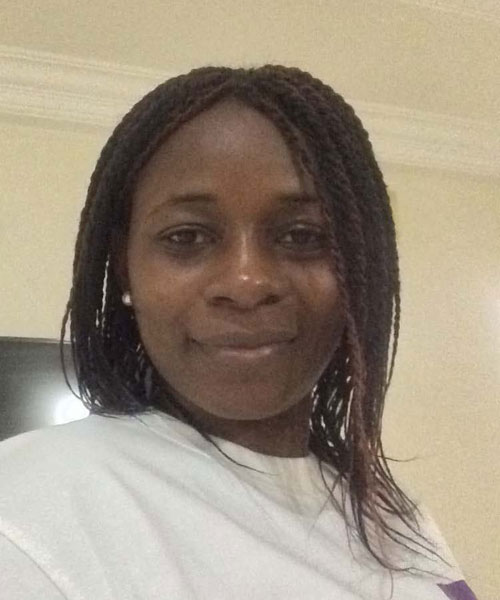
"The benefits I gained from the DBT-TWAS Fellowship are technical skills in recycling different organic waste materials, and in the use of some specific instrumentation; I also got the sense of sustainable development and exposure to human relations," said environmental biotechnologist, Adetoun Helen Lawal, an expert in biogas production and chemistry. Lawal, a Nigerian scientist from Lagos State was selected for a five-year (2012-2017) PhD programme under the DBT-TWAS programme.
Lawal spent her fellowship at the Environmental Sciences and Engineering Department, Council for Scientific and Industrial Research (CSIR) - Central Leather Research Institute (CLRI) in Adyar, India, working on the production of biogas from tannery, fruits and vegetable wastes, and sugarcane juice residue. "I am extremely grateful to God and DBT-TWAS for the amazing international experience as ‘I fought the battle and won’, eventually earning my PhD, gaining skills on leather techniques, molecular microbial techniques, bioinformatics and many others," Lawal said. Recently, in collaboration with the Centre for Atmospheric Research she has received a grant to work on the effects of gravity absence on biological systems in spaceflight. 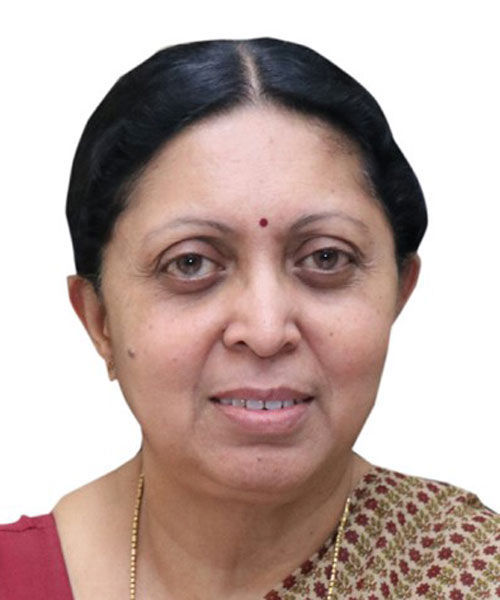
Lawal is one of the scientists who successfully applied for either PhD or post-doctoral fellowships since the programme's inception 16 years ago. A total of 136 scientists from 21 different nations have advanced their careers under the programme so far. Many of them recently met at the "First Conclave of DBT-TWAS Fellows: Achievement of Capacity Building in Developing Nations". The event was held in Chennai, India, on 8-9 August 2019, with the aim of assessing the validity of the programme itself through feed-back from participants and their supervisors.
"Collaborative research is a vital element for science-driven societies, allowing nations to gain global leadership and economic prosperity," said Renu Swarup, secretary to the Government of India’s Ministry of Science and Technology, in her inaugural address. Swarup is also the recipient of the 2018 TWAS Regional Prize in Science Diplomacy. "Considering the need for capacity building in developing countries,” she added, “we are proud of this joint DBT-TWAS programme and of its important achievements.” 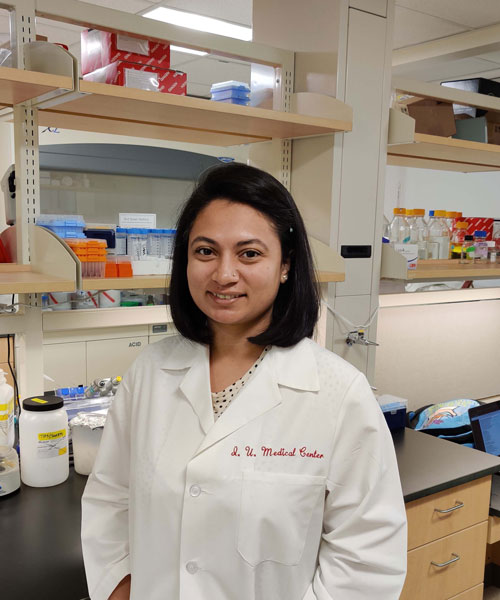
The Fellowship Programme was launched with the aim to foster research collaborations and build a new class of highly-educated, ambitious scientists, by offering full-time PhD and post-doctoral fellowships, as well as sandwich-programmes for those who already follow a PhD in their home country and join this experience for a limited amount of time. However, in its first years the training offer was not fully allocated — of the 50 fellowships available, an average of 8 to 10 were assigned each year.
"The number of awards has grown exponentially since the first years, but there is room for further growth," observed Max Paoli, TWAS programme coordinator. "The increasing number of applications we receive reflects the high quality of programmes, and the variety of fields where young researchers receive higher education, addressing societal challenges in agricultural sciences, molecular biology, medical and health sciences, chemistry, including frontier fields such as neurosciences."
The high teaching standards coupled to the ambition to get the maximum out of the fellowship is reflected in the high number, more than 100, of scientific papers so far published in peer-reviewed journals, and in some patents filed by the young scientists.
"Pursuing my PhD under the DBT-TWAS Fellowship Programme with Professor Swati Patankar at the Indian Institute of Technology Bombay (IIT), in Mumbai, helped me a lot in the development of my own independent thinking," maintained Vishaka Dey from Dhaka, Bangladesh, whose period of research lasted from 2014 to 2018.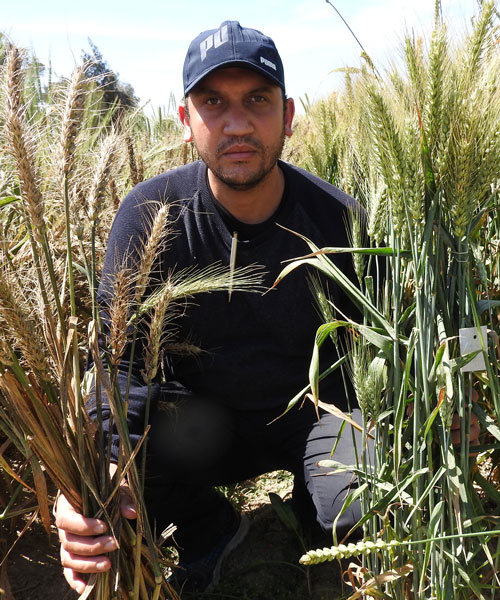
Dey is a molecular parasitologist who studied a protein related to the physiology of Plasmodium falciparum, the malaria causing agent. She is currently a postdoctoral fellow involved in research on agents causing parasitic disease and their treatment at Indiana University School of Medicine, Indianapolis, U.S. ”Not only did I gain professional skills, but I also published three research articles. Now I have confidence in my capacity as a researcher."
Ahmed F. Elkot, now a scientist at the Wheat Research Department, Field Crops Research Institute, ARC, Giza, Egypt, spent 18 months as a postdoctoral fellow at Punjab Agricultural University, Ludhiana (Punjab), from 2016-2018. "During my postdoctoral fellowship I worked on the transfer of disease resistance genes from wild species of wheat to cultivated wheat," explained Elkot. Upon his return to Egypt, Elkot is leading a research group focused on understanding and exploiting wild varieties of wheat that were new for Egypt, to identify plants that are resistant to diseases and tolerant of environmental stresses like drought and salinity.
Thanks to his significant international experience he was recently awarded a Newton-Mosharafa grant, in collaboration with colleagues from the John Innes Center, UK; he also received the U.S. - Egypt Science and Technology Joint Fund, in collaboration with colleagues from Gene shifters, LLC, (USA), and an Egyptian-Indian scientific grant in collaboration with Parveen Chhuneja, a professor at School of Agricultural Biotechnology, Punjab Agricultural University, Punjab, India.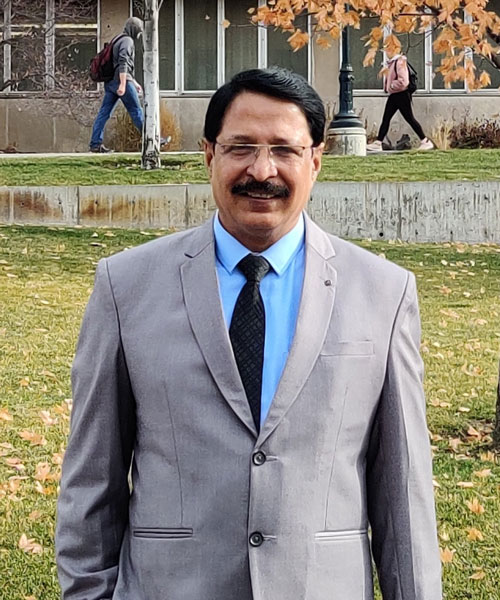
Looking at the Fellowship Programme from another perspective is also a good way to tell its effectiveness. Palash Deb Nath, a professor from the department of plant pathology, Assam Agricultural University (AAU), in Jorhat, Assam is currently supervising a student. "I am extremely delighted to have John Oladeji Oladokun as a PhD scholar, here at AAU," he said.
"Coming all the way from Nigeria and adjusting to the situation in Assam is really prizeworthy for John. His labmates and all the colleagues in the department are very fond of him, for his friendly attitude and behaviour. He is a sincere and dedicated researcher. I wish to have scholars like John in any future venture of DBT-TWAS."
Rewarding as it might be, receiving a five-year fellowship and planning such a long-term period away from home might be a demanding choice as well. And for some scientists, it asks for personal and family sacrifice. "One of the most difficult things or decision to make is to leave your family for several years, to pursue your ambition," said Abass Toba Anifowoshe, a Nigerian PhD research scholar now at the Department of Molecular Reproduction, Development and Genetics, Indian Institute of Science, Bangalore.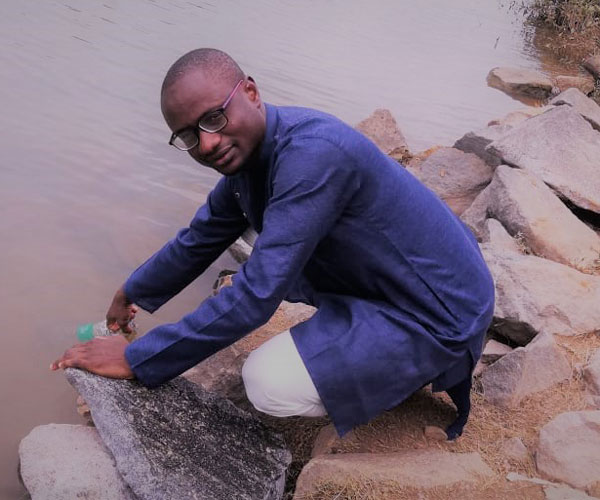
Anifowoshe, who will end his PhD in 2024, is evaluating the toxic potential of some polluted water bodies in and around Bangalore. He uses an inexpensive, quick test based on a fish called zebrafish (Danio rerio), which is a model organism that shares a high percentage of protein-coding genes with humans. These genes are associated with human disease that come from polluted water. "However in times like these distance can be bridged by modern technologies such as Skype and Whatsapp: in fact I speak every day with my wife and daughter, who are very proud of me."
Cristina Serra

